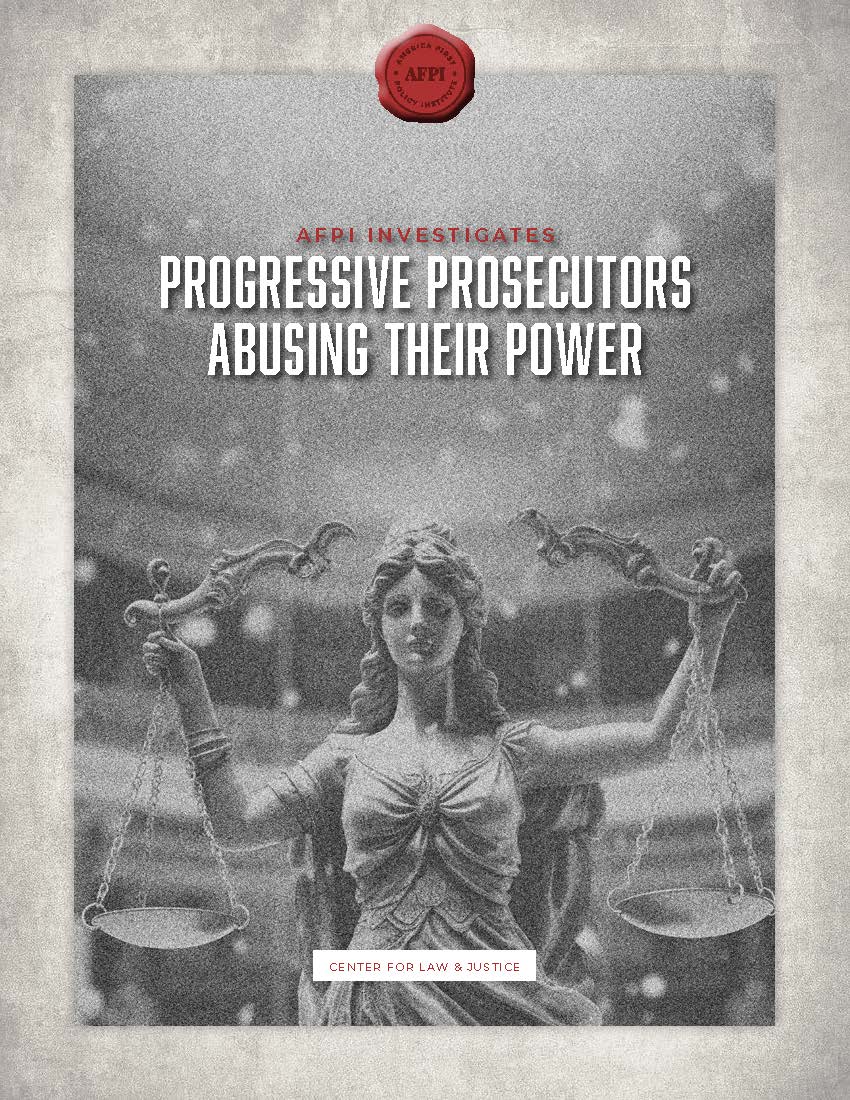AFPI Investigates Progressive Prosecutors Abusing their Power
American Prosecutors
Americans expect their prosecutors to prosecute crimes. After all, it’s in their title. The lead prosecutor in a community sets the policies and practices that inform how critical decisions are made in the local prosecutor’s office. Lead prosecutors and their executive staff define the goals of the office and instruct line prosecutors on how to approach decision-making on their cases. A lead prosecutor’s influence on how the local justice system operates also extends beyond the office and staff to other criminal justice system stakeholders. Lead prosecutors influence other actors in their local criminal justice system, particularly the police, judges, and juries. Although prosecutors don’t set bail, they can play a vital role in changing bail practices because their recommendations are one of the most significant factors affecting whether bail is set and in what amount. They are responsible for representing “the people.”
The Recent Rise of Rogue Progressive Prosecutors
The criminal justice system plays a pivotal role in maintaining the safety and security of our society and upholding the rule of law. Its primary function is to ensure that those who commit crimes are held accountable and that the public is protected from potential harm. However, in recent years, there has been a rise in the implementation of extreme progressive criminal justice policies that challenge these foundational principles. Specifically, policies such as cashless bail, broad decriminalization measures, and the reluctance to pursue charges against certain criminal wrongdoers have become points of contention.
Decriminalization Policies and Increasing Crime Rates
Cashless bail, for instance, arguably meant to address economic disparities in the justice system, can dangerously allow individuals with a history of violence to return to the community without adequate oversight. Broad decriminalization policies, though ostensibly focused on “social justice” and aimed at reducing the burden on the prison or jail systems, may actually embolden criminal activity by removing the deterrent of incarceration. Additionally, the failure to appropriately seek charges against criminal wrongdoers can erode public trust in the justice system and potentially endanger communities.
Analyses have shown that regions where these policies have been aggressively implemented have often seen corresponding spikes in crime rates. Though correlation does not necessarily imply causation, such trends warrant careful scrutiny and consideration.
Five Notable Crime-Ridden Cities
Among the hardest hit by the recent crime epidemic are the cities of Atlanta, Los Angeles, Minneapolis, New York City, and Philadelphia. Not surprisingly, each of these jurisdictions is represented by a lead prosecutor whose policies bring into question their commitment to law and order and public safety.
